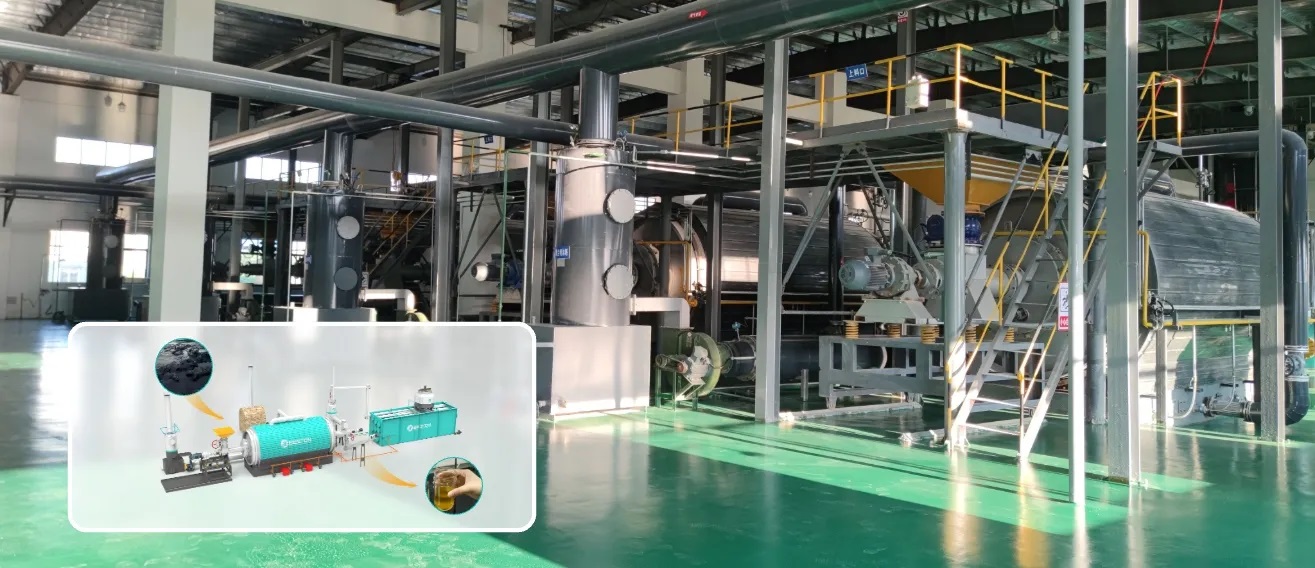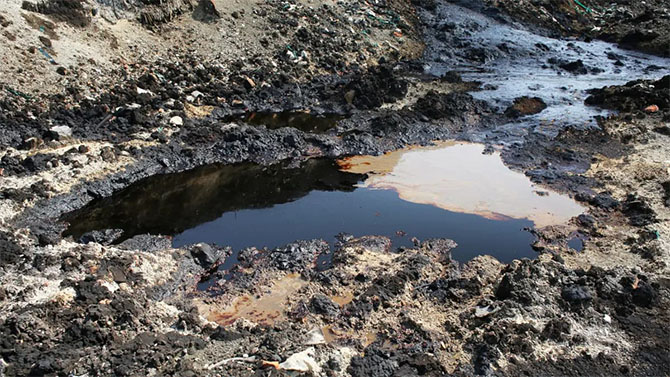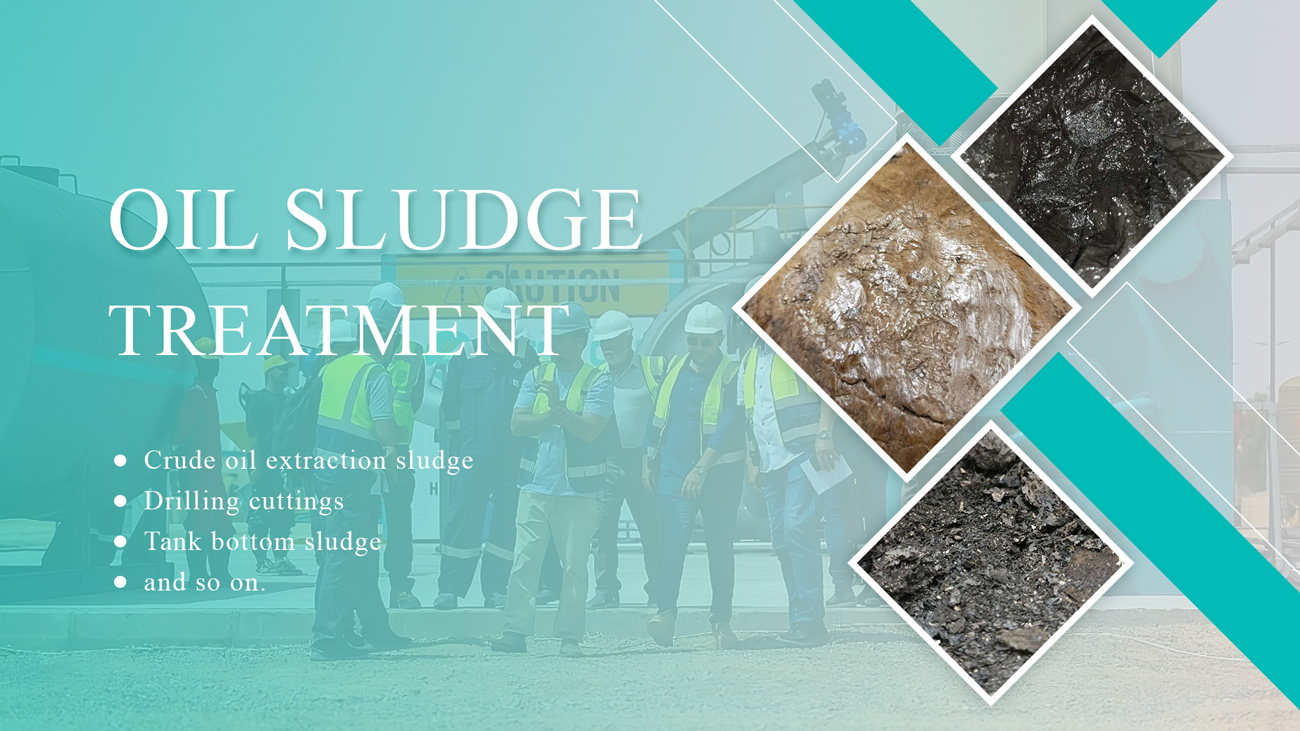South Africa has rich energy sector and an expanding industrial base. As environmental regulations tighten and the demand for cleaner technologies increases, industries are turning toward advanced solutions that can minimize ecological impact while maximizing resource recovery. Among the emerging technologies, thermal desorption offers a promising pathway for sustainable waste management and oil recovery.
Understanding the Role of Thermal Desorption
Thermal desorption is an environmentally friendly process designed to separate hydrocarbons and other contaminants from solid materials like oil sludge, drilling waste, or contaminated soil. This technology operates by heating waste materials to a specific temperature range, causing the hydrocarbons to vaporize. These vapors are then condensed and recovered as usable oil, while the remaining solids are cleaned and often reused. The process dramatically reduces the volume of hazardous waste that must be disposed of and allows for the recovery of valuable resources that would otherwise be lost.
In industrial applications, the thermal desorption unit plays a central role. It serves as the core system that enables efficient heat transfer and hydrocarbon recovery. By using advanced temperature control and indirect heating systems, it ensures complete treatment of waste materials without causing combustion or secondary pollution.

Current Environmental Challenges in South Africa
South Africa’s petroleum and mining industries are significant contributors to the nation’s economy, but they also produce large volumes of oily sludge and drilling residues. Improper disposal of this waste can lead to severe soil and water contamination, threatening ecosystems and human health. The traditional methods, such as landfilling or incineration, are no longer sustainable due to strict environmental laws and high operational costs. Therefore, industries are now seeking technologies that can both comply with environmental standards and offer economic returns through resource recovery.
Government policies in South Africa are gradually shifting toward circular economy principles, encouraging companies to reduce waste, recycle materials, and recover energy from industrial by-products. This shift creates an ideal environment for the adoption of modern waste-to-energy technologies, including thermal desorption and pyrolysis.

Integration with Pyrolysis Technologies
The thermal desorption process aligns closely with pyrolysis technology, both relying on controlled heating in the absence of oxygen to break down complex hydrocarbons. In South Africa, facilities such as the pyrolysis plant in South Africa are becoming more prevalent as industries explore alternative waste management strategies. These facilities can process not only oil sludge but also tires, plastics, and biomass, converting them into useful products like fuel oil, gas, and carbon black.
The synergy between thermal desorption and pyrolysis offers a comprehensive waste treatment solution. For example, oil sludge can first undergo thermal desorption to remove free hydrocarbons, and the remaining solids can then be treated in a pyrolysis reactor to extract additional energy and minimize waste to near-zero levels.
Economic and Environmental Benefits
Implementing advanced technologies, such as an oil sludge treatment plant brings multiple benefits. Economically, recovered oil can be refined and reused as industrial fuel, reducing dependency on imported petroleum products. Environmentally, the process significantly lowers carbon emissions compared to traditional incineration methods. Furthermore, treated solids can be repurposed for construction materials or safely disposed of, eliminating the long-term liabilities associated with hazardous waste storage.
In South Africa’s context, where energy security and environmental protection are both top priorities, thermal desorption technology provides a balanced solution. It transforms a waste management problem into an opportunity for energy recovery and sustainable development.

Beston Group’s Contribution to Technological Advancement
The Beston group pyrolysis has been widely recognized for its efficiency, automation, and environmental compliance. Their modular designs allow for easy adaptation to different waste streams and local conditions. In the South African market, Beston’s thermal desorption and pyrolysis solutions provide a strong technological foundation for companies seeking to modernize their waste treatment infrastructure. With their energy-efficient design and advanced emission control systems, these solutions can meet both the country’s industrial and environmental goals.
Beston Group’s ongoing research focuses on improving heat recovery, lowering energy consumption, and integrating renewable energy inputs into the desorption process. These innovations are expected to make thermal desorption systems even more cost-effective and sustainable in the coming years.
Future Prospects and Industry Outlook
As South Africa continues to invest in green technologies, the adoption of thermal desorption units and related pyrolysis systems is expected to grow steadily. Local partnerships between technology providers, government agencies, and industrial operators will play a key role in scaling up this technology nationwide. Additionally, training and capacity-building programs will help local engineers and operators manage and maintain these sophisticated systems, ensuring long-term operational success.
The combination of favorable policy, technological readiness, and environmental necessity positions South Africa as one of the most promising regions for thermal desorption technology expansion. With proper investment and strategic implementation, the country can significantly reduce its environmental footprint while creating new opportunities for circular economy industries.
Conclusion
The path toward a cleaner and more sustainable industrial future in South Africa depends on adopting advanced waste treatment technologies that align with environmental and economic goals. Thermal desorption, when integrated with pyrolysis and supported by innovative companies, can redefine how oil sludge and similar wastes are managed. As the nation strives to balance industrial growth with ecological preservation, embracing such technologies will not only protect the environment but also foster long-term economic resilience.